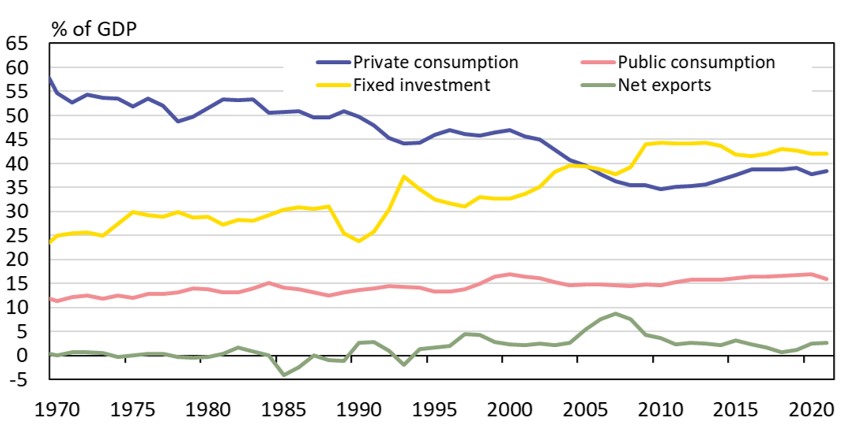BOFIT Weekly Review 52/2022
China sets out economic policy priorities for 2023 and longer-range outlines for 2035
In mid-December, the nation’s top economic decision-makers, including president Xi Jinping, met in Beijing for the annual Central Economic Work Conference. Economic policy for 2023 was laid out at the meeting. The key priority in the coming year will be on accelerating economic growth after the current covid wave abates. In particular, China seeks to strengthen consumer demand by increasing household disposable incomes. The conference saw also important to halt the contraction of the construction and real estate sector that has been underway for well over a year. Another goal is improving the operating environment for private and foreign firms, while more targeted funding will be directed to SMEs, technology, innovation and green development. Fiscal policy should be geared to “forcefully” supporting growth, while in monetary policy emphasis will be on targeted measures that promote consumption and help the real estate sector. As usual, the conference determined the annual GDP target for next year, but the actual figure will only be revealed publicly in March at the National People’s Congress. Some observers expect next year’s GDP growth target to exceed 5 %.
Two days before the Economic Work Conference, the Central Committee of the Communist Party and the State Council released outline for boosting domestic demand by 2035. Most of the proposed measures are designed to encourage consumption, which the government hopes to become the engine of economic growth as the the current paradigm of growth driven by fixed investment that seems to have run its course. China’s leaders hope the shift also increases economic stability and makes China less vulnerable to external shocks. Measures to boost consumption include raising household incomes, narrowing the income gap and reducing the development disparities between the countryside and cities. The government will also seek to increase support to parents to help cover the costs of raising and educating their children, as well as support the electrification of transportation and encourage climate-friendly consumption. The policy outlines also cover investment, where China seeks to improve efficiency of investment and increase industrial investment. Despite years of political rhetoric about raising domestic consumption, China has made little progress in that direction. Moreover, the country has suffered setbacks in its efforts over the past three years of the covid pandemic.
While private consumption in China is a smaller contributor to GDP than in advanced economies, China’s fixed investment rate (gross fixed capital formation to GDP) remains stunningly high by international standards

Sources: China National Bureau of Statistics, CEIC and BOFIT.